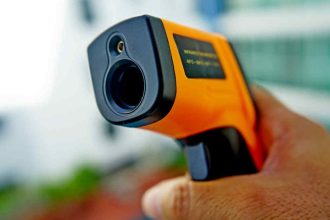Traveling with a concussion can be challenging, but with the right strategies, you can still enjoy your journey while prioritizing recovery. One of the most critical aspects of healing is getting proper rest. Whether you’re on a long-haul flight or staying in a hotel, you need to adjust your routine to sleep better when recovering from a concussion. This guide will help you understand how to manage your symptoms, create a restful environment, and ensure a smooth trip without compromising your health.
- Understanding Concussions and Travel Challenges
- Preparing for Your Trip
- Managing Symptoms While Traveling
- Creating an Ideal Sleep Environment
- Nutrition and Hydration for Recovery
- Gentle Exercises and Relaxation Techniques
- Coping with Jet Lag and Time Zone Changes
- Seeking Medical Assistance on the Road
- Conclusion
Understanding Concussions and Travel Challenges
A concussion is a mild traumatic brain injury (TBI) that can affect memory, concentration, balance, and sleep. Common symptoms include headaches, dizziness, fatigue, and sensitivity to light and noise. Traveling can worsen these symptoms due to changes in altitude, time zones, and disrupted routines. To minimize the impact, it’s essential to plan ahead and make adjustments to your travel schedule.
Preparing for Your Trip
Before embarking on a trip, consult with a medical professional to assess whether it is safe for you to travel. If you get the green light, take the following precautions:
- Choose the right transportation: If possible, opt for direct flights or train rides to reduce stress and minimize disruptions.
- Pack wisely: Bring essential medications, an eye mask, noise-canceling headphones, and a comfortable pillow to improve rest.
- Plan for rest stops: If traveling by car, schedule frequent breaks to avoid overexertion.
- Inform travel companions: Let your friends or family know about your condition so they can offer support when needed.
- Consider accommodations: Choose a quiet hotel room away from elevators and busy streets to minimize noise disturbances.
- Carry a doctor’s note: In case you need special accommodations during your trip, having medical documentation can be useful.
Managing Symptoms While Traveling
During transit, you may experience headaches or nausea due to movement and environmental changes. To stay comfortable, try these strategies:
- Minimize screen time: Prolonged screen use can trigger symptoms, so use blue light filters or take breaks from digital devices.
- Stay hydrated: Dehydration can worsen headaches, so drink plenty of water and avoid caffeine or alcohol.
- Use noise-canceling headphones: Block out loud noises that can trigger discomfort, especially in airports or on public transport.
- Wear sunglasses: Bright lights can be overwhelming, so protect your eyes with tinted or blue light-filtering lenses.
- Adjust your seat: If possible, choose a seat with extra legroom and recline slightly to reduce strain on your neck and head.
- Apply cold or warm compresses: A travel-size gel pack can help relieve headaches and tension.
Creating an Ideal Sleep Environment
Sleep is crucial for concussion recovery, and adjusting your sleep environment can make a significant difference. Follow these tips to ensure restful sleep while traveling:
- Control lighting: Use blackout curtains, an eye mask, or dim lights in your accommodation to promote melatonin production.
- Reduce noise distractions: A white noise machine or earplugs can help block unwanted sounds and improve sleep quality.
- Adjust room temperature: Keep your sleeping area cool and well-ventilated to enhance comfort.
- Stick to a bedtime routine: Try to maintain a consistent sleep schedule, even when changing time zones.
- Avoid electronics before bed: The blue light from screens can interfere with melatonin production, making it harder to fall asleep.
- Choose comfortable bedding: If possible, bring your own pillow or a small travel blanket to make your sleeping setup feel familiar.
Nutrition and Hydration for Recovery
What you eat and drink can impact your recovery and energy levels. To support brain healing, focus on:
- Hydration: Drink plenty of water to help reduce headaches and fatigue.
- Balanced diet: Consume foods rich in omega-3 fatty acids (salmon, walnuts), antioxidants (berries, spinach), and lean protein to support brain function.
- Limit caffeine and alcohol: Both substances can interfere with sleep and exacerbate symptoms.
- Small, frequent meals: Eating light, nutrient-dense meals throughout the day can help prevent fatigue and dizziness.
- Electrolyte replenishment: Coconut water or sports drinks with electrolytes can help maintain hydration levels.
Gentle Exercises and Relaxation Techniques
While intense physical activity should be avoided, light movement and relaxation exercises can help with recovery:
- Gentle stretching: Simple yoga poses or light stretching can alleviate tension and improve circulation.
- Deep breathing exercises: Practicing mindful breathing can reduce stress and promote relaxation.
- Guided meditation: Listening to calming audio or meditation apps can help ease anxiety and improve sleep quality.
- Light walking: If you feel up to it, short walks can help reduce stiffness and promote blood flow.
- Massage therapy: If available, a gentle massage can help relieve tension in the neck and shoulders.
Coping with Jet Lag and Time Zone Changes
Traveling across multiple time zones can disrupt your circadian rhythm and make concussion symptoms worse. To adapt more easily:
- Gradually adjust your schedule: A few days before departure, start shifting your sleep and meal times closer to the new time zone.
- Expose yourself to natural light: Sunlight helps regulate your internal clock, so spend time outdoors in the morning.
- Take short naps if needed: Avoid sleeping too long during the day, as it can make adjusting to the new time zone harder.
- Stay consistent: Try to maintain a similar routine to what you follow at home.
- Use sleep aids cautiously: If you need help falling asleep, opt for natural remedies like chamomile tea or melatonin supplements under medical guidance.
Seeking Medical Assistance on the Road
If your symptoms worsen or you experience severe headaches, confusion, or vomiting, seek medical attention immediately. Research nearby hospitals or clinics before your trip and carry a list of emergency contacts. It’s also a good idea to have travel insurance that covers medical emergencies.
Conclusion
Traveling with a concussion requires careful planning, but by following these strategies, you can enjoy your journey while prioritizing your recovery. Focus on proper rest, hydration, and symptom management to ensure a smooth trip. Remember, your health comes first, so take it slow and listen to your body’s needs. By making small adjustments, you can still explore new places while giving yourself the care you need to heal.














